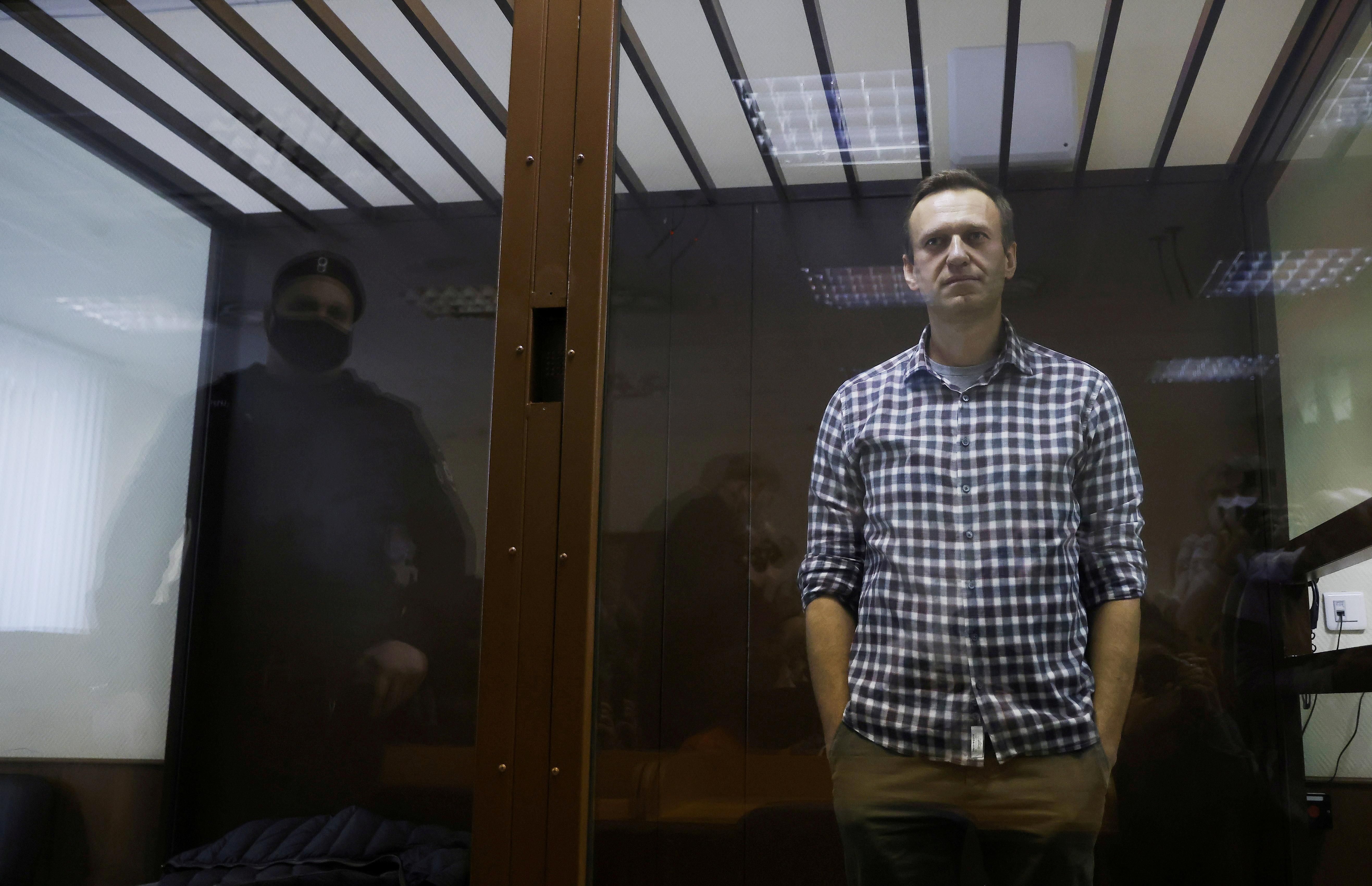One of the world's most famous political dissidents may die in a Russian prison this week.
Alexei Navalny has been on a hunger strike since March 31 over the authorities' refusal to let his own medical team examine him after he developed signs of tuberculosis. Now, one of his aides says Navalny is "close to death."
The fate of Vladimir Putin's most prominent critic — who was poisoned last summer, allegedly by state officials, treated in Germany, and then jailed upon his return to Russia — is being closely watched both inside and outside the country.
The US and Europe, as always, are issuing statements. As Navalny's condition worsened over the weekend, the White House warned that "there will be consequences" if Navalny dies on Russia's watch. The European Union demanded he get immediate access to independent medical professionals. The Kremlin, meanwhile, insisted that Navalny will not be allowed to die behind bars, but it also called him a "hooligan" for refusing to eat while sick.
The bigger question is what those consequences will be, and whether they really hurt Moscow in such a way that compels Putin to change his ways.
Until now, there has been little appetite in the West for tougher sanctions on Russia that could really choke the country's economy or ruling elites. Cutting off access to Russian sovereign debt would starve Russia of money, but also impact US and European investors. Sanctioning its oil or natural gas exports would have a crippling effect, but wreak havoc with global energy markets and potentially leave Europe — Moscow's main gas customer — in the cold.
What about inside Russia? Navalny isn't quite as popular domestically as he sometimes seems in the Western media. According to a recent poll, only 19 percent of Russians approve of his activities since he returned to the country. Compare that to Putin's own approval ratings, which have dipped a bit in recent months but still hover in the low sixties.
Still, Navalny's support is strongest among young, mostly urban Russians who braved subzero temperatures to come out in his support in January. They were the largest protests in Russia in years, even if they were quickly beaten back by a ferocious police crackdown. Navalny supporters now plan a much bigger rally on Wednesday, which will coincide with Putin's annual address to the nation. How many people will turn up?
Navalny is not the only contentious issue between the West and Russia nowadays. Over the weekend, the Czech Republic, a member of NATO, linked two Russian military intelligence agents to an explosion at a Czech arms depot in 2014. It just so happens that the two spooks in question are the same ones accused of the high-profile poisoning of a Russian dissident in the UK three years ago.
What's more, NATO is increasingly worried about the recent build-up of Russian soldiers at the border with eastern Ukraine. As fighting between Russian-backed separatists and Ukrainian forces flares, there is concern that the Kremlin may muscle in with its own forces.
So, what may we expect? If Navalny dies, Western governments will surely respond in some way. They could place Russian officials or oligarchs on sanctions lists related to human rights violations. But at a moment when the Kremlin seems to be testing the West's resolve yet again, are Brussels and Washington willing to go any further?
Putin is watching this at least as closely as we are.
- Putin's nemesis - GZERO Media ›
- Putin's gulag gamble with Navalny - GZERO Media ›
- Why opposition leader Alexei Navalny returned to Russia after ... ›
- Alexei Navalny dies in prison - GZERO Media ›
- “A film is a weapon on time delay” — an interview with “Navalny” director Daniel Roher - GZERO Media ›
- Navalny's death is a huge loss for democracy - NATO's Mircea Geona - GZERO Media ›
- Alexei Navalny's death: A deep tragedy for Russia - GZERO Media ›
- Navalny's death is a message to the West - GZERO Media ›
- Understanding Navalny’s legacy inside Russia - GZERO Media ›
More For You
China was largely absent from the core conversations at the 2026 Munich Security Conference. That, says Ian Bremmer, is telling.
Most Popular
At the 2026 Munich Security Conference, Brad Smith announces the launch of the Trusted Tech Alliance, a coalition of global technology leaders, including Microsoft, committing to secure cross-border tech flows, ethical governance, and stronger data protections.
When the US shift from defending the postwar rules-based order to challenging it, what kind of global system emerges? CFR President Michael Froman joins Ian Bremmer on the GZERO World Podcast to discuss the global order under Trump's second term.
TODAY at 12 pm ET: Watch our Global Stage live premiere from the Munich Security Conference
Tune in today at 12pm ET/6pm CET for the live premiere of our Global Stage from the 2026 Munich Security Conference, where our panel of experts takes aim at the latest global security challenges. NY Times National Security Correspondent David Sanger moderates the discussion with Benedetta Berti, Secretary General, NATO Parliamentary Assembly; Ian Bremmer, President & Co-founder, Eurasia Group & GZERO Media; Dr. Wolfgang Dierker, Global Head of Government Affairs, SAP; and Brad Smith, Vice Chair & President, Microsoft.
